How to Naturally Increase Your Platelet Count
February 8, 2023
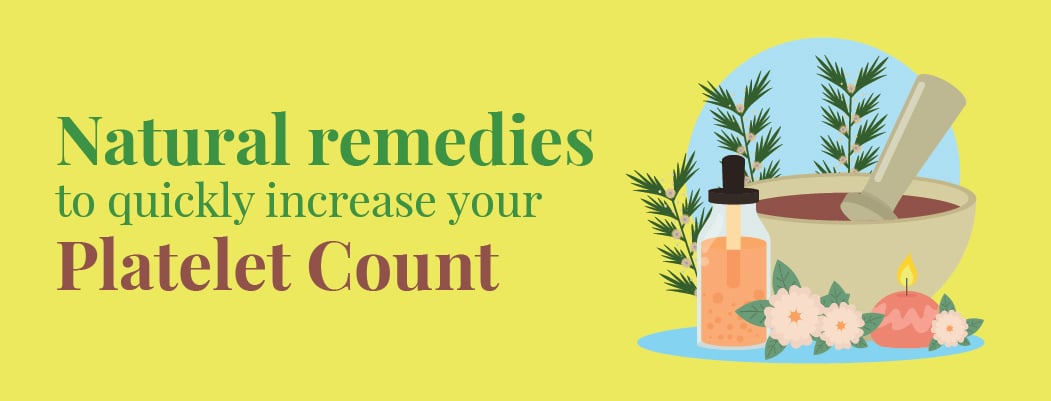
How to Naturally Increase Your Platelet Count
Platelets are tiny blood cells that are crucial in the process of blood clotting. They are formed in the bone marrow and circulate in the bloodstream, helping to prevent bleeding by forming clots in the event of an injury or wound. Low platelet count, also known as thrombocytopenia, can be caused by several factors, including viral infections, autoimmune disorders, medications, and certain types of cancer. If you have a low platelet count, there are natural ways to help increase your platelet count.
What causes a low platelet count?
The blood cells called platelets aid in blood clotting. When your platelet count is insufficient, you may experience symptoms such as fatigue, easy bruising, and bleeding gums. Thrombocytopenia, or low platelet concentration, is another name for this condition.
Several conditions, including leukaemia, cancer treatments, alcoholism, liver cirrhosis, spleen enlargement, sepsis, autoimmune diseases, and specific medications, can bring on thrombocytopenia.
It’s crucial to work with your doctor to identify the root cause of poor platelet counts if a blood test reveals them.
Food and supplements can increase your platelet count if you have mild thrombocytopenia.
You will most likely need medical treatment to prevent complications if your platelet level is extremely low.
Papaya leaf extract
Papaya leaf extract has attracted attention for its potential role in managing low counts. So far, research into the impact of papaya leaf extract on platelet count has demonstrated generally encouraging results, but more thorough studies are required to establish definite evidence.
Papaya leaf extract can be taken in different forms such as teas, juices or supplements. However, the amount of extract administered can also vary in terms of dosage purity and safety and hence this has to be used with a lot of care as well especially for individuals who have health complications or those on medication.
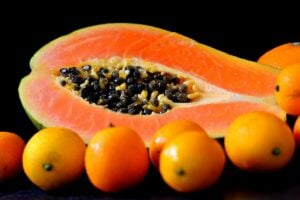
To use papaya leaf extract, mix 2 tablespoons of the juice with 1 tablespoon of honey. Take this mixture twice a day for at least a week to see an improvement in your platelet count.
Green vegetables
Green vegetables such as spinach, kale, broccoli and the rest contain lots of vitamins, minerals and antioxidants , there is no direct information that confirms if they improve platelet numbers. Blood cells also include platelets, which play an important role as part of the blood-clotting process; many things can alter the count of these types or their numbers including medical conditions, medications such and nutritional deficiencies.
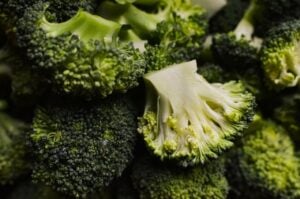
Milk
Milk, while not directly treating a low platelet count resulting from deficiencies in certain nutrients such as calcium or vitamin D — having it included into a balanced diet would have an indirect impact on benefiting overall health and possible contributing towards the alleviation of these types of deficiencies; However, it is necessary to seek professional medical advice from a healthcare provider in relation to personal concerns on platelet count and nutritional deficiencies.

Aloe Vera
Aloe vera is a plant that has many health benefits, including the ability to increase platelet count. It contains compounds that stimulate the production of white blood cells, which helps increase platelet count.

Mix 2 tablespoons of aloe vera gel with a glass of water or fruit juice to use aloe vera. Drink this mixture twice a day for at least a week to see an improvement in your platelet count.
Vitamin C
Vitamin C is an essential nutrient which has antioxidant value as well it helps to enhance the immunity and overall health of a person. It does not directly increase platelet count but it is crucial in maintaining healthy blood vessels and supporting the proper function of platelets.
Since vitamin C is required for normal functioning of platelets and other blood cells, adequate levels are necessary. It aids in iron absorption which is imperative for hemoglobin synthesis by red blood cells. In addition, vitamin C supports the good health of blood vessels that could have an indirect effect on platelet function and circulation.
Vitamin C deficiency, although not common in well-fed people (but can be found under certain circumstances), may affect the overall blood health. Severe shortages may cause problems such as scurvy that can compromise the integrity of blood vessels and reduce his body’s ability to form clots correctly.

To increase your vitamin C intake, eat more fruits and vegetables high in this nutrient. You can also take a vitamin C supplement to help boost your platelet count.
Beetroot
Beetroot is red in colour and nutritious nature has a lot of vital elements such as vitamins, minerals , antioxidants why it Is rich which are very important to our health. Such advocates have speculated that iron, and folate found in beetroot might help to increase platelet count since such nutrients play a significant role in blood cell formation.
Iron is an essential component in the formation of hemoglobin for red blood cells while folate plays a more general role regarding synthesis of DNA and cell division including making blood cells but not specifically platelets.
Though beetroot is a nutritious food, which could improve the overall health condition of an individual; there isn’t strong scientific evidence attributing increased platelet count to direct consumption of this vegetable. But, its nutrient content may indirectly contribute to general blood health.
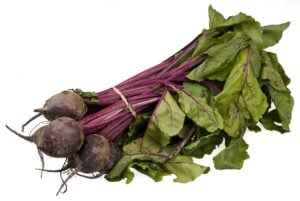
Indian Gooseberry
Indian gooseberry, also known as amla, are a fruit high in vitamin C and antioxidants. It is also a natural immune booster and helps to stimulate the production of white blood cells and platelets.

To use Indian gooseberry, mix 2 tablespoons of amla juice with a glass of water or fruit juice. Drink this mixture twice a day for at least a week to see an improvement in your platelet count.
Wheatgrass
While wheatgrass contains nutrients such as vitamin K, which plays a role in blood clotting and even chlorophyll that may turn to have some minor health benefits.
Nutrient density of wheatgrass may contribute to overall health and support different physiological functions in the organism, such as blood one. Nevertheless, there is little strong scientific evidence to support the specific claims that it can improve platelet count significantly.
For those suffering from low platelet count or any other blood related issues it is critical to seek the advice of medical professionals for correct diagnosis and recommendations on appropriate treatment alternatives. To take wheatgrass or any single supplement daily, after meals for improving platelet count may help when this is done without medical advice and proper treatment .It improves your health but not the disease process involved leading to low blood counts.
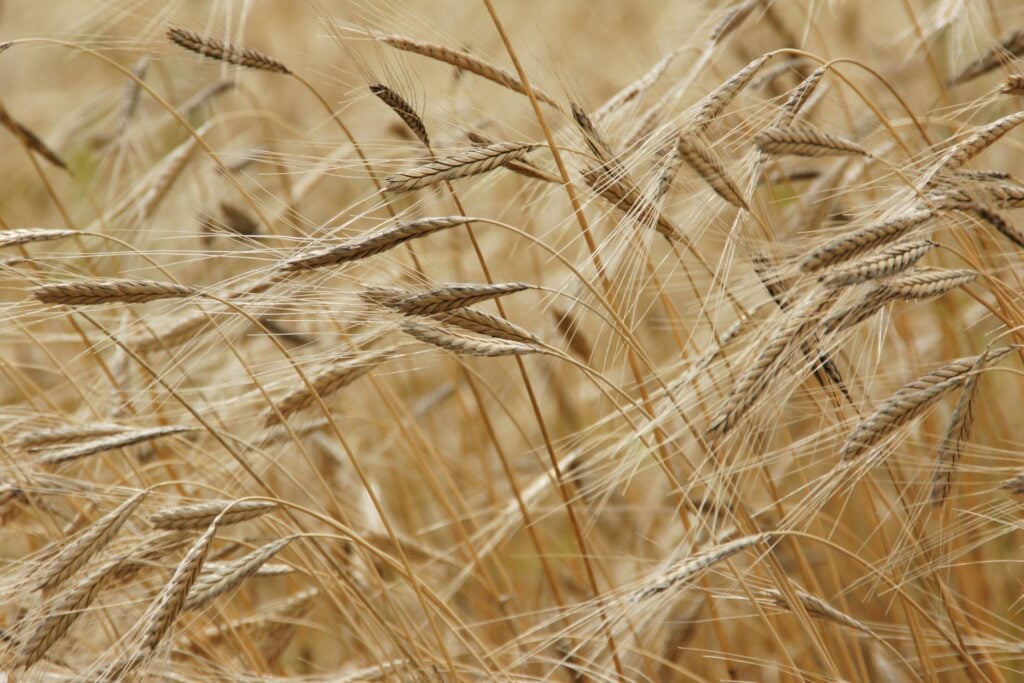
Mix 2 tablespoons of wheatgrass juice with a glass of water or fruit juice to use wheatgrass. Drink this mixture twice a day for at least a week to see an improvement in your platelet count.
Pumpkin
Pumpkin is a healthy food, full of many nutrients that can be advantageous for one’s health. Although it does contain all the necessary vitamins and minerals required for good health.
These nutrients support critical functions in immune function including helping the body fend off infection or illnesses that might affect platelet count indirectly.
A balanced diet that includes a lot of healthy foods such as pumpkin – rich in vitamins and minerals necessary for the body to function properly adds up to good health including normal blood cell production. Even depending on pumpkin or any particular food to skyrocket platelet count may not work.

Iron-rich food
Iron is essential for the production of red blood cells and platelets. Iron-rich foods include red meat, poultry, seafood, lentils, beans, spinach, and fortified cereals. Incorporating these foods into your diet can help boost your platelet count.
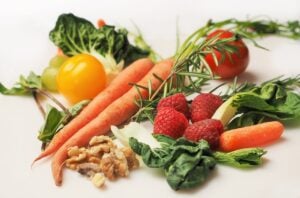
Vitamin K-rich food
Vitamin K plays a role in blood clotting and can help increase platelet count. Foods rich in vitamin K include leafy greens, such as kale, spinach, and collard greens, as well as broccoli and Brussels sprouts.

Zinc-rich food
Zinc is necessary for proper immune system function and can help increase platelet count. Zinc-rich foods include oysters, beef, crab, lobster, nuts, and seeds.

Pomegranate
pomegranate is a good and healthy fruit, which could promote blood platelets. There are some studies suggesting that pomegranate could have compounds which may lead to increase in platelet count or better functioning of the plates.
The fruit has substances including antioxidants (like flavonoids and polyphenols) that are suggested to possess anti-inflammatory potentials as well as plate stimulating effect. These compounds may contribute to general blood health and circulation issues that could, in turn, affect platelet count.
However, though there have been studies which suggest these beneficial outcomes as such the proof is not yet conclusive or definitive. Studies more often concentrate on particular parts of the pomegranate extract instead of using fruit, and this makes it hard to define exactly how a person eating from groups with about flavors may cast effects over platelet count.
Perhaps some of pomegranate’s positive impacts on platelets stem from its rich antioxidant contents that can help safeguard the system against oxidative stress and inflammation which may be important factors to consider when it comes to influences upon platelet functionality as well as elastogenesis.

Folates
Folate or vitamin B9 is very important in cell division and DNA synthesis, which are central processes for the manufacture of blood cells including platelets. To understand the relationship between folate and platelet count, it is also important to note that deficiency in this substance can lead to a type of anemia with larger red blood cells – megaloblastic one; however, this form will indirectly affect production of platelets as well.
Anemia associated with folate deficiency can result in some kinds of blood disorders that could have an impact on platelet counts; however, higher levels of dietary intake are unlikely to directly lead to a proportional increase in the number of platelets for everyone. Platelet count is not as specifically and directly affected by Folate as it is connected more generally with red blood cell production, and overall health of the blood.
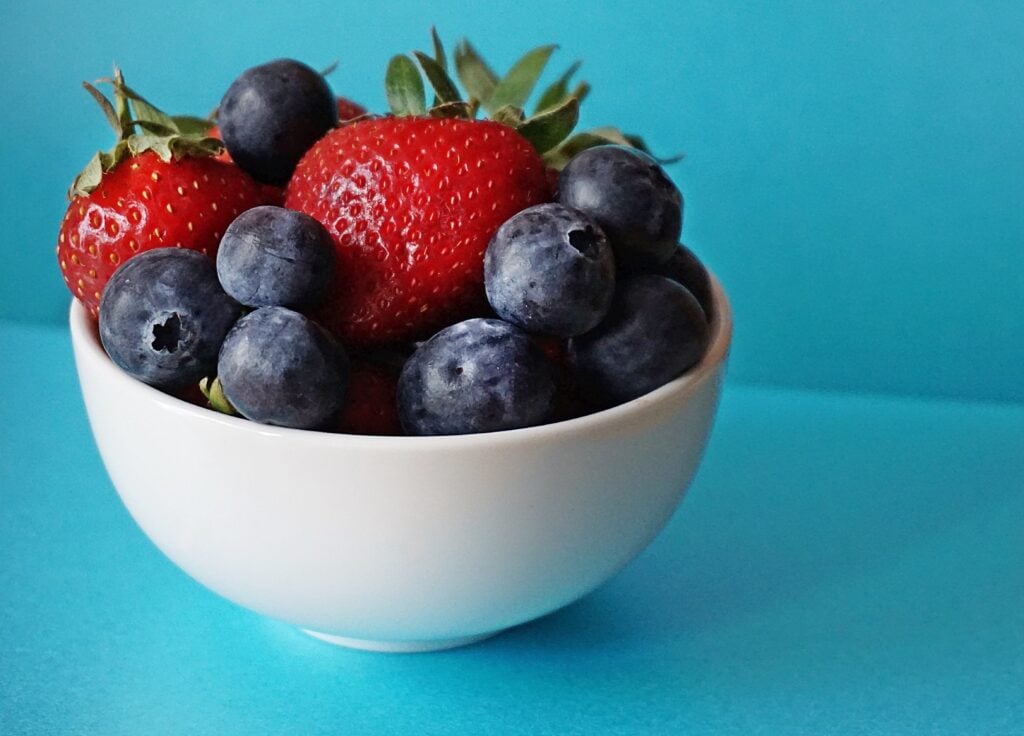
Lean protein
Lean proteins are one of the nutritious constituents in a healthy diet. They are sources of essential amino acids that form the basis for proteins in our body which have various roles. Unlike fatty cuts of meat, lean proteins are much lower in fat and calories making them a good choice for someone aiming to maintain a healthy weight or reduce hisintake levels of saturated fats. Here are some examples of lean protein sources:

- Poultry:
Chicken breast: Chicken breast, skinless and boneless is a lean protein source that can be cooked in many ways.
- Fish:
Salmon: Though it is an oily fish, salmon also contains heart-friendly omega -3 fatty acids in addition to protein.
Tuna: Canned tuna and fresh tuna steaks provide lean protein.

- Lean Meats:
Turkey: A versatile and lean protein option is turkey ground or breast.
Lean cuts of beef: These include sirloin, tenderloin, and round steaks.

- Plant – based protein:
Beans: Black beans, kidney beans and chickpeas contain a lot of protein that comes from plants.
When to see a Hematologist?
In case of thrombocytopenia, prompt treatment is crucial to avoid severe complications. You should seek medical attention immediately if you experience
- Excessive bleeding
- Bleeding from your nose or mouth after brushing your teeth
- Headaches from minor injuries
- Easy bruising that gets worse over time
People also ask
1. How can I increase my platelets quickly?
- Consuming a higher quantity of leafy vegetables.
- Adding more fatty fish to your diet.
- Raising your intake of folate.
- Steering clear of alcoholic beverages.
- Incorporating more citrus fruits into your meals.
- Eating more foods that are rich in iron.
- Considering the use of a chlorophyll supplement.
- Refraining from taking vitamin E and fish oil supplements.
2. What foods raise platelets?
- Milk is widely recognised as a valuable source of protein and calcium that helps sustain the health and robustness of our bones and muscles.
- Green leafy vegetables are a nutritious and beneficial addition to any diet.
- Extracts from papaya leaves can offer potential health benefits.
- Pomegranates are a fruit with potential health benefits.
- Pumpkins are a nutrient-rich food that can support overall health.
- Wheatgrass is a plant-based food that is often touted for its nutritional properties.
3. What happens when platelet counts are low?
Low platelet counts, or thrombocytopenia, increase the risk of bleeding, bruising, and spontaneous hemorrhage. Platelets, vital for blood clotting, are reduced, causing easy bruising, prolonged bleeding, and potential internal bleeding. Women may experience menstrual irregularities. Severe cases can lead to life-threatening hemorrhage in organs. Fatigue and weakness may result from chronic low platelet counts. Causes include bone marrow disorders, autoimmune diseases, and medications. Consultation with a healthcare professional is crucial for proper diagnosis and treatment, which may involve addressing the underlying cause or platelet transfusions.
4. Does Kiwi increase platelets?
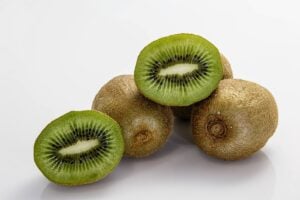
Kiwi fruit can assist in elevating platelet counts and may be beneficial for individuals experiencing anaemia, vitamin B deficiency, and various viral infections. To enhance platelet levels, it is recommended to consume two kiwis daily
5. Can eggs increase platelets?

Egg whites are known to increase platelet counts due to the presence of albumin, a crucial protein present in blood plasma.
6. What platelet count is normal?
A normal platelet count ranges between 150,000 and 450,000 platelets per microliter of blood. Counts below 150,000 may indicate thrombocytopenia (low platelets), while counts above 450,000 may suggest thrombocytosis (high platelets). Individual health conditions can influence these values. Consultation with a healthcare professional is recommended for concerns about platelet counts.










